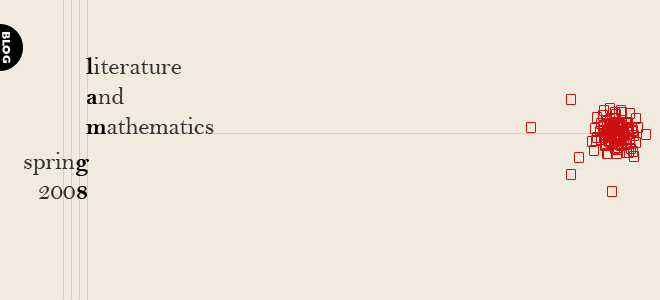Square time after time comes back to ‘the nature of truth’. All of the quotes included in Vas hint at a key characteristic of such ‘truth’; that it must be acknowledged by trustworthy authority in order to garner any importance. If consensus is the key to discerning truth, or fact, statistics could be viewed as the Great Authority in the Information Age. Statistics is the basis of so many social sciences (and in a more esoteric way, hard science as well). The scientific method, case studies, experiments etc. all rely on repeatability. Of course man eventually turned these amazing tools of technological inquiry to manipulating himself along with the world around him. Such is the basis of medicine, and its strange younger sibling, psychology. We use statistics to describe and understand how we may best protect ourselves, remain healthy and achieve what we desire. Square’s fascination with the bell curve hits on this. My first association is with the false authority given to polls (*cough*political) as if their statistical nature presupposes their gravity.

2 comments:
I noticed the repition of the normal distribution too. What do you make of the the poem made to resemble a bell curve on p. 241? Apparently it was written by W.J. Youden, but Tomasula didn't attribute it to anyone.
Yeah! That poem was in my mind while I was writing the post, but it seemed out of place and I didn't quite know how to connect it to the rest of the text. I assumed it was original work.
Now that I look at it again the poem itself seems to reflect a major conflict in VAS: between 'broad generalizations' and 'indispensable tools'.
Post a Comment